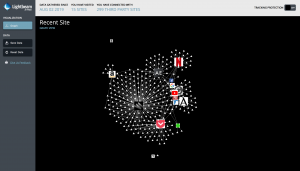How well does Google know me?
After spending years on the internet using google, it is safe to say that they have complied a lot of information and data about me! I have created accounts on Google giving them access to my name, location, and personal information. They are able to see my web activity, which gives them access to my likes and dislikes. After learning about the information Google has on me I changed my account settings. Many of the activity controllers were active, so I paused them all. After exploring more about tracking on the web, what I’ve learned is honestly quite concerning. I do not want others to have access to my location, it is private information and I don’t know why it is necessary others have access to that information.
Google is often used in schools, it is free and accessible to users. During my second practicum in a grade 4 class, my mentor teacher used G Suite with her students. All of the students had a Google account and often worked on Google Docs to complete assignments. When I was there I never gave much thought about it from a privacy standpoint. I thought it was a great idea and it worked well for the class. However, I think it is important that before we use Google as an educational tool, we also inform our students and their parents about the privacy risks. Students should be aware of data mining and that google keeps a record of everything they search. According to Bill Fitzgerald’s article Where the Sidewalk Ends: Wading Through Google’s Terms of Service for Education, “every time a learner accesses a third-party app via their Apps for Edu account, their data flows to the third-party vendor, and is governed by the terms set by that vendor” (Fitzgerald, 2015). The rules that Google has with regards to privacy no longer applies (Fitzgerald, 2015). I think this should be something we teach in schools, especially before signing students up for a Google Account. Bill Fitzgerald purposes many great suggestions for how Google could improve their terms and conditions to protect student privacy. One of the terms that I agree should be added is to “explain exactly how learner data will be scanned within the core Apps for Edu purchases” (Fitzgerald, 2015). We must protect our data and personal information, and if we are going to be using it for educational purposes, it is vital that we also teach our students how to protect themselves online as well.
Check out this link on Google Apps for Education: Data Mining and Threat to Student Privacy: https://bit.ly/2Oy8Zei
Tracking the Trackers- Gary Kovacs:
After watching Gary Kovacs TED Talk on, Tracking the Trackers I was shocked to find out how many websites track what sites we view online. By searching one thing online, we open ourselves up to the internet finding out personal details. From there they can use that information to target Ads specific to our likes and dislikes. When I first experienced this, it felt like an invasion of privacy. The instant we use the internet, our information becomes open to the world, and we lose our privacy. When Gary Kovacs was describing his Collusion Profile and showing the visual, I was stunned to see how many third-party websites had been accessed and were now tracking his personal information.
When I tried out Lightbeam to see who was tracking me on the web the results were freaky! During a half a day I worked on my blog post, watched videos on YouTube, read news articles, watched a show on Netflix, and did some online shopping. In total, I had only visited 15 websites, however, 299 third party websites were tracking me. This activity has been quite an eye-opening experience. I often spend a fair bit of time on the internet, I had no idea how many third-party websites were tracking me, and as a result, had access to my personal information. While search engines use the information they gather to personalize our experience on the web, it is worrisome not knowing where the data that is collected goes and who might be using that information to target individuals.
Below I have included a screenshot of my Data Profile.

Check out these links for further information on Internet Tracking:
https://www.macleans.ca/economy/business/behavioural-tracking-youre-being-stalked-across-the-web/
https://www.cpomagazine.com/data-privacy/online-behavioral-tracking-whos-spying-on-your-every-move/
References:
Fitzgerald, B. (2015). Where the Sidewalk Ends: Wading Through Google’s Terms of Service for Education.Retrieved from https://funnymonkey.com/2015/where-the-sidewalk-ends-wading-through-googles-terms-of-service
Feature Image Retrieved from: https://www.outlookindia.com/website/story/no-privacy-here-google-will-track-your-movements-even-if-you-tell-it-not-to/314956



